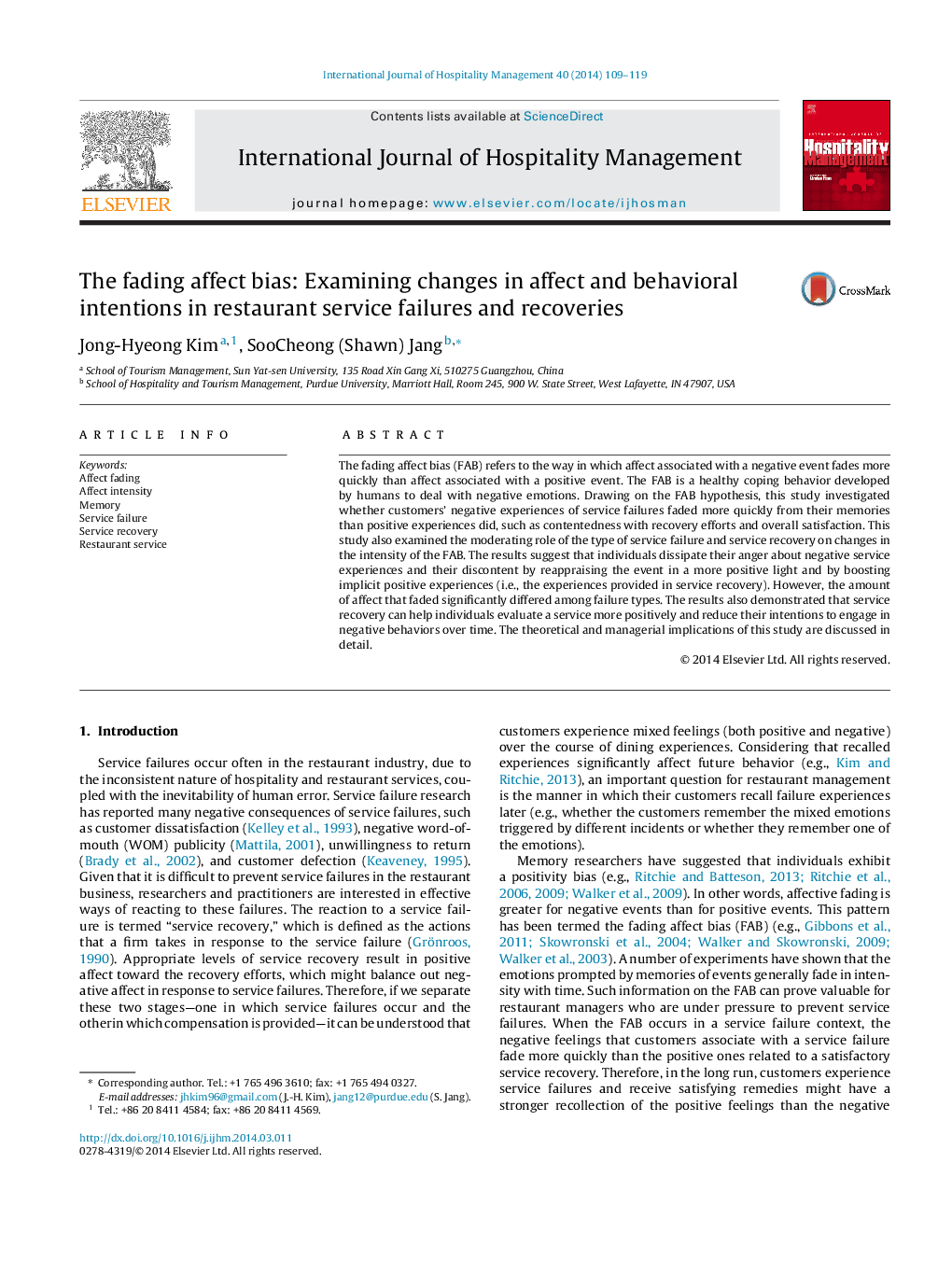| Article ID | Journal | Published Year | Pages | File Type |
|---|---|---|---|---|
| 1009364 | International Journal of Hospitality Management | 2014 | 11 Pages |
The fading affect bias (FAB) refers to the way in which affect associated with a negative event fades more quickly than affect associated with a positive event. The FAB is a healthy coping behavior developed by humans to deal with negative emotions. Drawing on the FAB hypothesis, this study investigated whether customers’ negative experiences of service failures faded more quickly from their memories than positive experiences did, such as contentedness with recovery efforts and overall satisfaction. This study also examined the moderating role of the type of service failure and service recovery on changes in the intensity of the FAB. The results suggest that individuals dissipate their anger about negative service experiences and their discontent by reappraising the event in a more positive light and by boosting implicit positive experiences (i.e., the experiences provided in service recovery). However, the amount of affect that faded significantly differed among failure types. The results also demonstrated that service recovery can help individuals evaluate a service more positively and reduce their intentions to engage in negative behaviors over time. The theoretical and managerial implications of this study are discussed in detail.
